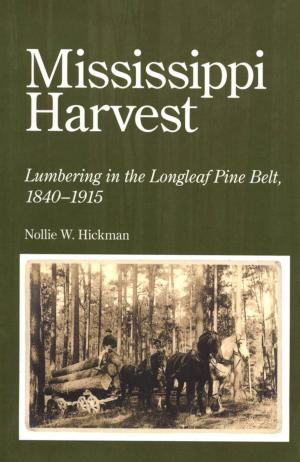The Lakes of Pontchartrain
Their History and Environments
Nonfiction, Science & Nature, Nature, Environment, Lakes & Ponds, Environmental Conservation & Protection, Biography & Memoir, Reference| Author: | Robert W. Hastings | ISBN: | 9781604734706 |
| Publisher: | University Press of Mississippi | Publication: | September 21, 2009 |
| Imprint: | University Press of Mississippi | Language: | English |
| Author: | Robert W. Hastings |
| ISBN: | 9781604734706 |
| Publisher: | University Press of Mississippi |
| Publication: | September 21, 2009 |
| Imprint: | University Press of Mississippi |
| Language: | English |
A vital and volatile part of the New Orleans landscape and lifestyle, the Lake Pontchartrain Basin actually contains three major bodies of water--Lakes Borgne, Pontchartrain, and Maurepas. These make up the Pontchartrain estuary. Robert W. Hastings provides a thorough examination of the historical and environmental research on the basin, with emphasis on its environmental degradation and the efforts to restore and protect this estuarine system. He also explores the current biological condition of the lakes.
Hastings begins with the geological formation of the lakes and the relationship between Native Americans and the water they referred to as Okwa'ta, the "wide water." From the historical period, he describes the forays of French explorer Pierre Le Moyne D'Iberville in 1699 and traces the environmental history of the basin through the development of the New Orleans metropolitan area. Using the lakes for transportation and then recreation, the surrounding population burgeoned, and this growth resulted in severe water pollution and other environmental problems. In the 1980s the Lake Pontchartrain Basin Foundation led a concerted drive to restore the lakes, an ongoing effort that has proved significant.
A vital and volatile part of the New Orleans landscape and lifestyle, the Lake Pontchartrain Basin actually contains three major bodies of water--Lakes Borgne, Pontchartrain, and Maurepas. These make up the Pontchartrain estuary. Robert W. Hastings provides a thorough examination of the historical and environmental research on the basin, with emphasis on its environmental degradation and the efforts to restore and protect this estuarine system. He also explores the current biological condition of the lakes.
Hastings begins with the geological formation of the lakes and the relationship between Native Americans and the water they referred to as Okwa'ta, the "wide water." From the historical period, he describes the forays of French explorer Pierre Le Moyne D'Iberville in 1699 and traces the environmental history of the basin through the development of the New Orleans metropolitan area. Using the lakes for transportation and then recreation, the surrounding population burgeoned, and this growth resulted in severe water pollution and other environmental problems. In the 1980s the Lake Pontchartrain Basin Foundation led a concerted drive to restore the lakes, an ongoing effort that has proved significant.















